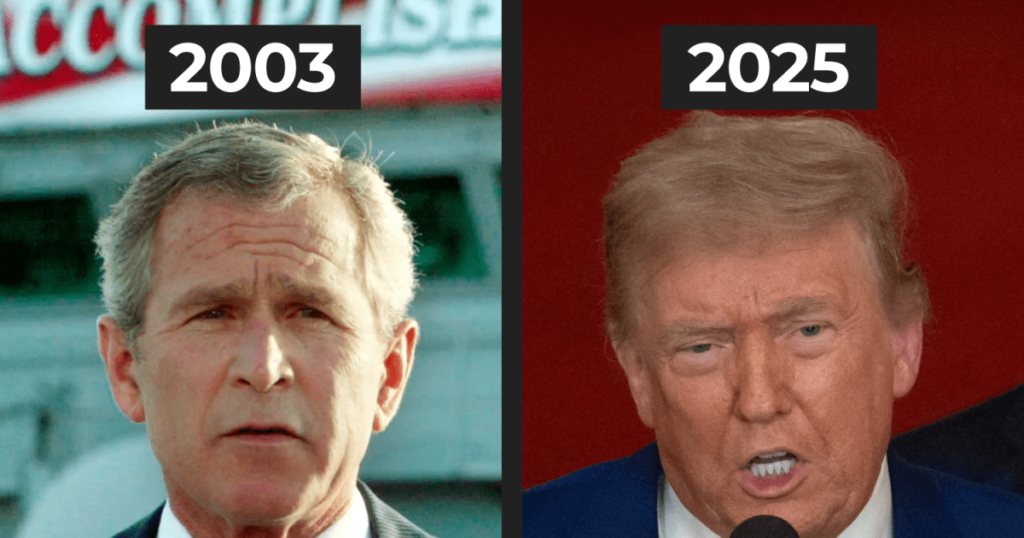With Israel and the US engaged in an escalating conflict with Iran, Western leaders are using words that sound all too familiar from the lead-up to the Iraq war.
“Today, we have the greater power to free a nation by breaking a dangerous and aggressive regime. With new tactics and precision weapons, we can achieve military objectives without directing violence against civilians.”
That may sound like something said yesterday, following US strikes on Iran.
But it wasn’t.
Those words were delivered by United States President George W Bush on board the USS Abraham Lincoln on May 1, 2003, as he marked the end of major combat operations in Iraq.

Now, with Israel and the US engaged in an escalating conflict with Iran, world leaders are using language and rhetoric that sound all too familiar, drawing eerie comparisons to the lead-up to the Iraq war more than two decades ago.
Familiar warnings, similar justifications
Israel and the US have claimed their military strikes are aimed at preventing Iran from developing a nuclear weapon. Iran, for its part, insists its nuclear programme is entirely peaceful and meant solely for civilian purposes.
For more than three decades, a familiar refrain has echoed from Israeli Prime Minister Benjamin Netanyahu: Iran is on the verge of developing nuclear weapons. In 2002, he urged the US Congress to invade Iraq, claiming Baghdad was developing weapons of mass destruction (WMDs). He also claimed Iran was pursuing nuclear weapons. The US invaded Iraq in 2003, but no WMDs were found.
The latest surge in inflammatory rhetoric from American and Israeli officials goes beyond Iran’s alleged nuclear ambitions and missile capabilities. Increasingly, it hints at the possibility of regime change, a direction the US has a long and controversial history of pursuing in the region.
History repeating?
The war led by the US and its “coalition of the willing” left Iraq in ruins, with hundreds of thousands of Iraqis killed, about 4,500 American soldiers dead, and the country destabilised by deepening sectarian conflict.
Looking back, the rhetoric that paved the way for that invasion seems unsettlingly familiar. The US, along with the United Kingdom, tried to convince the world that Iraq had WMDs as the war progressed.
How well can you tell the difference? Read these 10 statements and decide: were they made in the lead-up to the 2003 war or in 2025?


